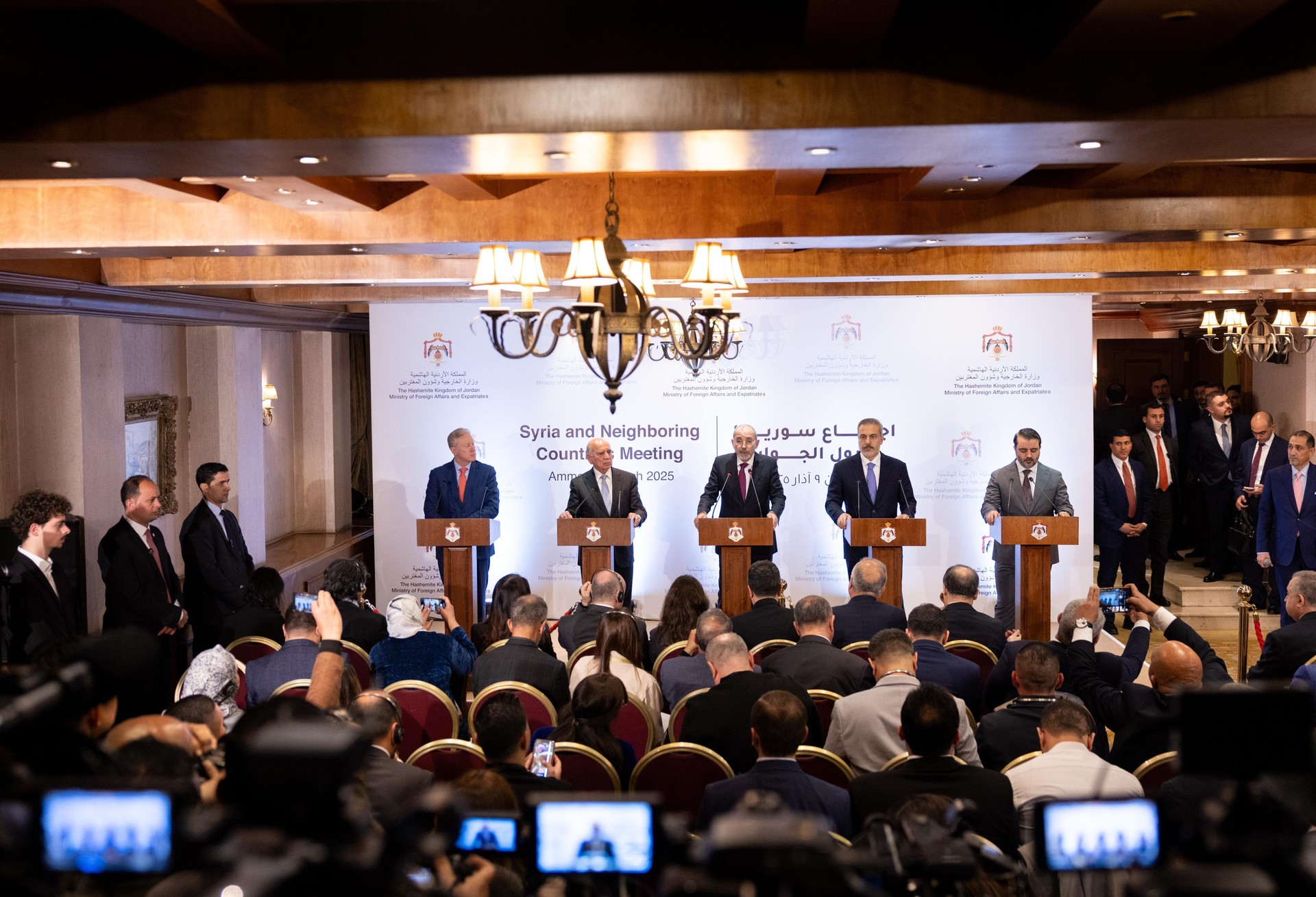
Following the Syria and Neighboring Countries Meeting hosted by Jordan on Sunday, it was announced that the second round of talks will take place in Türkiye in April.
Jordanian Foreign Minister Safedi confirmed that Türkiye will host the 2nd Syria and Neighboring Countries Meeting, as outlined in the joint statement issued after the gathering.
The meeting, hosted by the Hashemite Kingdom of Jordan, brought together the foreign ministers, defense ministers, chiefs of staff, and intelligence directors from the five countries. Key topics of discussion included counterterrorism, border security, curbing drug and weapon smuggling, and addressing broader regional issues.
From Türkiye, Foreign Minister Hakan Fidan, Defense Minister Yasar Guler, and National Intelligence Organization (MIT) chief Ibrahim Kalin participated in the meeting.

A joint statement issued by Türkiye, Jordan, Iraq, Lebanon, and Syria condemned all attempts to undermine Syria's security and expressed support for its government. The statement highlighted several critical points, including:
One of the key outcome of the meeting was the decision to reconvene for a second round of talks in Türkiye in April. This follow-up meeting will build upon the discussions and address decisions aimed at furthering regional stability and cooperation.
Participants also underscored the importance of continued collaboration and reaffirmed their commitment to upholding international law, supporting the Syrian people, and working towards peace and stability.

In recent days, Syria’s coastal provinces of Latakia and Tartus have seen a surge of attacks by loyalists of the former Assad regime. These attacks, described as the most severe since the regime’s fall in December, targeted security patrols, checkpoints, and hospitals, causing casualties.
In response, Syrian security and military forces launched sweeping operations to track down the attackers. Despite fierce clashes, government officials have stated the situation is moving toward full stability.
Bashar Assad, Syria’s leader for nearly 25 years, fled to Russia on Dec. 8, marking the end of the Baath Party regime, which had ruled since 1963. Ahmad al-Sharaa, who led anti-regime forces to oust Assad, was declared transitional president on Jan. 29.